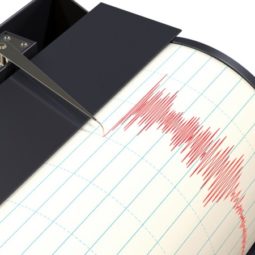OAI VS. Workers’ Compensation: Do You Need One or the Other or Both?
March 25, 2021

Despite the most comprehensive safety measures, injuries, accidents, illnesses, and the like do still happen in workplaces. The degree of risk varies depending on the industry, but it is still always present. For this reason, workplace accident insurance policies are in place to protect both the employees, independent contractors, and their employers.
For employers, the choice of getting either a workers’ compensation policy or occupational accident insurance (OAI) is one that should be made with a lot of consideration. One is not necessarily better than the other. It all depends on the needs of the business and, to some extent, the regulations in the area.
A deeper understanding of these options can help employers decide which is more ideal for their businesses. This article can help.
Workers’ Compensation VS. Occupational Accident Insurance
There are a lot of similarities between these two kinds of policies, but there are also important differences.
Workers’ compensation is an insurance program that is generally administered by the state. It covers all the medical bills and lost wages of an employee who was injured at work. This policy even covers the medical expenses that may occur even years after the incident that caused the injury. Workers’ compensation also typically covers lost-income benefits and legal expenses.
Like workers’ compensation, an OAI policy covers the medical bills of those injured at work and designed more for independent contractors rather than employees due to State regulations. The main difference is that with the OAI, the amount covered is limited by the policy. The employer is often in control of just how much coverage they want to get for their Independent Contractors/employees. There are also other factors that may affect the coverage amounts, like the perceived inherent risk of the job.
Advantages & Disadvantages
Here are the pros and cons of workers’ compensation and occupational accident insurance for employers.
Workers’ Compensation Pros
- The medical expenses and lost wages of the employee are paid through the Workers’ Compensation system.
- In an injury lawsuit, the employee holds the burden of proof.
- The liability of the employer is reduced because employees generally cannot win punitive damages in lawsuits.
- The benefits are protected by a guaranty association or a guarantor.
- These policies are relatively straightforward and simple to get coverage after an incident.
Workers’ Compensation Cons
- These policies usually cost more compared to OAI plans.
- Adverse Audit issues possible when working with independent contractors.
OAI Pros
- OAI policies generally cost less for employers
- The costs are even reduced with the option of controlling the limit of the coverage amount.
- These policies also typically offer more flexibility for employers.
- It is the choice of the employer whether or not to include coverage for other benefits including; Hernia, Hemorrhoids, Occupational Cumulative Trauma, Occupational Disease to name a few.
OAI Cons
- The liability of the employer is raised because employees can sue for pain and suffering and punitive damages and independent contractors can sue for employment status.
- In injury lawsuits, the burden of proof falls on the employer.
- Legal fees are also often included in the coverage.
- These policies can be complicated compared to workers’ compensation.
Contact Midlands Management for Your OAI or Worker’s Compensation Insurance
Both the workers’ compensation and OAI policies have advantages and disadvantages, especially for employers. It’s important to consider the industry, the risk associated with the job, and the potential legal consequences of accidents and injuries at work. State requirements may also sometimes affect the choice of employers. Visit the Department of Labor’s website for more information.









